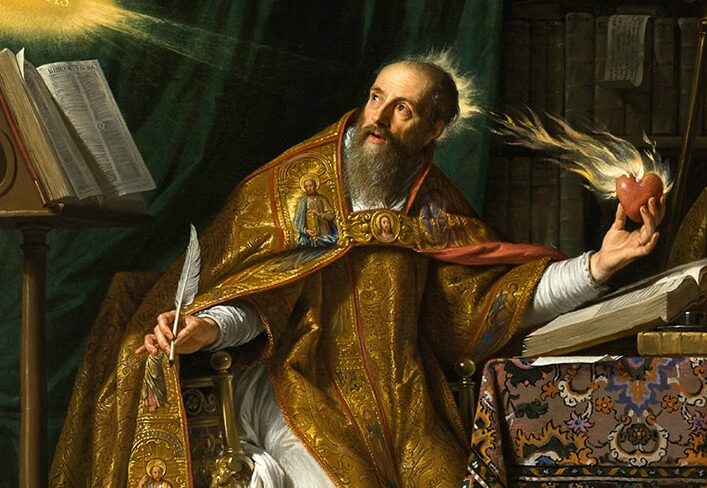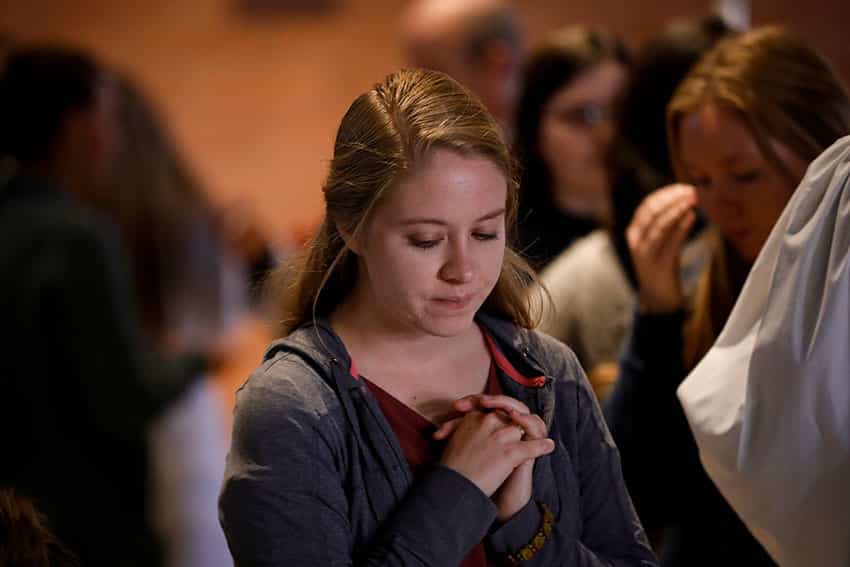
Reflecting on the nature of my work, I have the great privilege of supporting students, teachers and parents in their faith journey, and working with parishes and schools as faith communities.
The value of faith is borne out in Sacred Scripture, its significance attested to by Jesus throughout his public ministry. Jesus revealed the importance of faith, not just through his miracles, particularly those of healing, but also through his parables, his teachings, and his interaction with others.
Faith is a gift of grace that enables us to recognise God and to be drawn ever deeper into relationship with him. It is both a gift and a response, and God is both the giver and the gift. As a consequence of our free-will, the gift of faith can be freely received and nurtured, or freely rejected.
God does not impose belief or relationship upon us. Instead, we are invited to respond freely. This invitation is highlighted in the story of the Rich Young Man (Lk 18:18-30), who on account of his attachment to material goods and wealth was unable to fully surrender to God and to follow Christ.
God always takes the initiative in our relationship, beckoning us, seeking us, yearning for our communion together. In his Confessions, St Augustine describes his struggles in responding to the gift of faith:
“Rather than having faith in ‘one God’ they have made gods of many things and have become servants of them. In an illusion of freedom, they seek fulfilment and fullness of life apart from God.”
“Late have I loved you, O Beauty ever ancient, ever new, late have I loved you! You were within me, but I was outside, and it was there that I searched for you … You were with me, but I was not with you. Created things kept me from you; yet if they had not been in you they would not have been at all.”
St Augustine’s struggles are not unique. Rather, they are commonplace. All too often people become pre-occupied with worldly things, willingly substituting temporary happiness for eternal reward. Rather than having faith in ‘one God’ they have made gods of many things and have become servants of them. In an illusion of freedom, they seek fulfilment and fullness of life apart from God.
Often people fail to see God in the reality of life, especially in the midst of pain and human suffering. Facing personal trial and tribulation, or being confronted by ‘evil’ in the world, many question the very existence of God, and struggle to comprehend why God would allow bad things to happen.
God is not absent from pain or human suffering. Rather, it is an experience of God’s self-communication to us, one that draws us into a deeper and more intimate understanding of Jesus’ own redemptive act. Jesus forewarned us of the struggles and the sufferings that accompany faith and Christian discipleship (Mk 8:34). That does not mean of course that hardship and suffering is any easier to bear, even for those who live holy lives.

Faith is ever developing and ever-growing and we must seek opportunities to form and nurture it. It does not remain as the gift we first received but by virtue of our response it either diminishes or flourishes (Matt 13: 1-23). Faith is intended to grow from a ‘belief’ in God to knowledge of, and a loving relationship with him.
Without faith there can be no proper understanding (Is 7:9), not just of God, but of ourselves and the world in which in we live. A mature faith seeks both knowledge and understanding.
St Anselm’s text Fides quaerens intellectum (faith seeking understanding) underpins the nature and purpose of theology. He wrote, “I have written this little work from the viewpoint of persons trying to raise their mind to contemplate God and seeking to understand what they believe.”
Understanding is important so that faith is not ill-conceived or ill-informed. At the same time, we must realise that our understanding of God will always be limited, for the Mystery of God is inexhaustible and lies beyond human reasoning.
“faith is ever developing and ever-growing and we must seek opportunities to form and nurture it …”
In its purest sense, our faith is the “assurance of things hoped for and the conviction of things not seen” (Heb 11:1). This of course challenges many of our natural human inclinations, especially our desire to ‘be in control’, and for assurance, proof and certainty.
Jesus reminds us however that true joy is found in genuine faith; “Blessed are those who have not seen, yet have come to believe” (Jn 20:29). Belief in the one, true God is necessary for salvation, but it alone is not sufficient for salvation, nor for true Christian discipleship. Rather, for these to be realised, belief must permeate every facet of our lives so that belief and action are intertwined, revealing “faith working through love” (Gal 5:6).
There must be a consonance between inner belief and exterior practice otherwise our faith is barren, for “if good deeds do not go with it, it is dead” (Jm 2:17).
The Christian life must be formed and informed by Christian belief and to this end faith is inseparable from hope and love. Salvation and Christian discipleship are made possible by the synergy of the theological virtues, ‘faith, hope and love’, which enable us to experience genuine happiness and to flourish as human beings.
Faith is both a gift and a response. May our response be like that of Abraham, who journeyed out into the unknown (Gen 12:1-4), and like that of Mary, who humbly said ‘Yes’ to God (Lk 1:38).
